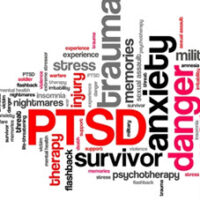Recovering Damages for PTSD Caused by a Car Accident

After car accidents, most victims focus on obtaining treatment for and recovering from physical injuries. While this is important, it is also critical for accident victims to seek treatment for injuries that are less difficult to see, but are in some ways just as serious, namely, psychological trauma. Victims of serious car accidents are at an increased risk for psychological problems, especially post-traumatic stress disorder (PTSD).
PTSD can take an enormous physical, emotional, and financial toll on victims and their families, making it difficult for many victims to hold down a job or handle problems in their personal life. Seeking treatment is key to overcoming these kinds of issues, so if you were injured in a car accident and are suffering from some or all of the symptoms of PTSD, you should strongly consider speaking with an experienced car accident attorney who can help you seek compensation to cover your treatment-related costs.
What is PTSD?
PTSD is an anxiety disorder that afflicts many of those who experienced a traumatic event that involved:
- Actual or threatened death;
- Serious injury; or
- Sexual assault.
The symptoms of PTSD vary, but many individuals who suffer from PTSD after an accident report experiencing the following symptoms:
- Psychologically reliving the trauma, which includes having flashbacks, suffering from recurring nightmares, and experiencing a physical response when reminded of the event, such as an increased heart rate or sweating;
- Persistently avoiding thoughts or situations associated with the accident, which includes avoiding places or people that remind the injured party of the crash, or refusing to drive;
- Numbness to emotional responsiveness, such as an absence of emotions or a feeling of detachment from other people; and
- Increased physical disturbances, including irritability, being easily startled, and insomnia.
PTSD in car accident survivors is much more prevalent than most people realize. In fact, a number of studies have revealed that PTSD affects as many as 25-33 percent of vehicle accident victims. An assessment of these statistics has led researchers to estimate that car accident-related PTSD affects between 2.5 and 7 million people in the U.S.
Obtaining Treatment
Accident victims who suffer from PTSD are often required to undergo extensive treatment, which can be extremely costly, as injured parties may need to:
- Seek professional counseling, which will help them learn how symptoms could be triggered and how they can lessen exposure to those situations;
- Discuss the event with family doctors and mental health specialists in order to regain control over their behaviors;
- Become educated about PTSD to lessen their stress and improve support systems;
- Focus on long-term recovery; and
- Obtain prescription medications to treat anxiety and related symptoms.
While these are important steps that accident victims who are suffering from PTSD may need to take in order to recover, they can be expensive. Fortunately, victims who were injured in accidents for which they were not at fault, can collect damages from the at-fault party to cover the cost of treatment.
Call Today for Legal Advice
To speak with an experienced car accident attorney about filing a claim to recover damages for your own accident-related injuries, please call Boone & Davis in Fort Lauderdale at 954-566-9919 or send us an online message today.
Resource:
ncbi.nlm.nih.gov/pmc/articles/PMC2396820/
